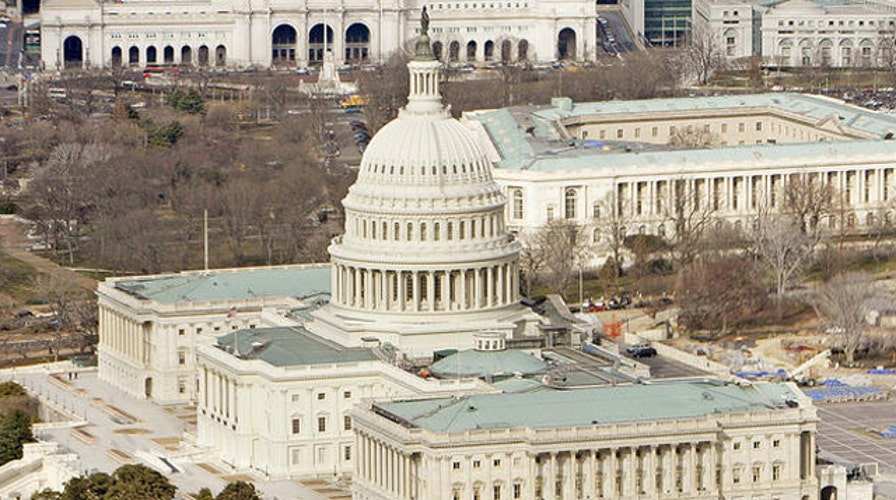“I fear it will crush American workers and our economy with trillions in new taxes, spending and debt. I fear [Senate Budget Committee Chairwoman Patty Murray, D-Wash.] will follow the president’s lead: raising taxes to enrich the bureaucracy at the expense of the people.”
-- Sen. Jeff Sessions, R-Ala., delivering the GOP’s weekly address.
President Obama says he’s ready to do a big deal with House Republicans. House Republicans say they’re ready to listen.
But any chance of coming up with a spending and borrowing plan to last beyond this fall – in fact, any chance of any action on a host of topics – depends on whether the Senate can really move any legislation.
[pullquote]
We’ll find out this week.
It’s been years since the Senate did much legislative heavy lifting and the upper chamber hasn’t produced a budget since 2009. But this week, Senate Democrats will start moving forward a budget as part of a deal that extended federal borrowing authority.
Senate Democrats haven’t done budgets for two main reasons. First and foremost is the desire to avoid politically damaging votes on a document with no chance of becoming law.
Why force members to vote for tax hikes, deficit spending increases and other electoral headaches if House Republicans won’t go along? The law says the Senate must have a budget, but nobody’s going to arrest Senate Majority Leader Harry Reid for ducking the duty.
It’s the same reason that the president hasn’t put forward his budget this year. The law says he must, but political calculation tells him he doesn’t want to put out a plan calling for higher taxes and deficit spending just as he’s quarreling with Republicans over those very issues. It’s harder for the president to express his interest in deficit reduction while floating a budget blueprint that sloshes red ink.
But the other reason Senate Democrats haven’t acted on a budget (or much else) in years is because of deep divisions within the party. Unable to find agreement on even basic concepts like entitlement reform and tax rates, Reid has been happy to let his members cool their heels while Obama and House Republicans fight their way from crisis to crisis.
With Democrats playing defense on at least 10 Senate seats next year, this is not an ideal time to start visiting these thorny issues and the budget process promises to sorely test party solidarity. Swing state Democrats will be looking to keep plenty of daylight between themselves and more liberal members, like Sen. Elizabeth Warren, D-Mass.
But they will also be looking to show distance between themselves and Obama, who’s slumping approval ratings show him to be a liability in many of the races, especially in red states.
Obama may right himself with voters in some states with his move from campaign-trail warrior to bipartisan negotiator, but in places like Alaska, Arkansas and Louisiana there will be no Obama rebound.
While Democrats are forced to fight over the fiscal big picture, they’ll also have to deal with the more urgent question of funding levels for the remaining six months of the federal fiscal year.
If Reid can’t quickly push through the House-passed plan for maintaining sequester-level spending rates, things could get very hairy. Liberals do not like it one bit and there is little time for seeking a new bargain.
The deal has to be done by March 27 and if the Senate balks at the House version, which Obama has already said he will sign, it will be Reid’s team that is responsible for a government shutdown. Reid hasn’t had to do much strong-arming of late, but he’ll need to exert some muscle to prevent liberal members from forcing amendments that would undo the deal and lead to a breakdown.
Reid can use the budget as a way to let liberals have their way and highlight their commitment to higher taxes and higher spending, which of course, takes us back to the deepening anxiety of moderate and red-state members who don’t want to see a budget that looks like it was drafted by MoveOn.org and the SEIU.
Democrats say they can have both things done – a stopgap spending package and a 10-year budget – complete by March 22 when the Senate is set to adjourn for Easter. That sounds like a pretty tall order for a body that has done so little work since 2010.
Chris Stirewalt is digital politics editor for Fox News, and his POWER PLAY column appears Monday-Friday on FoxNews.com. Catch Chris Live online daily at 11:30amET at http:live.foxnews.com.





